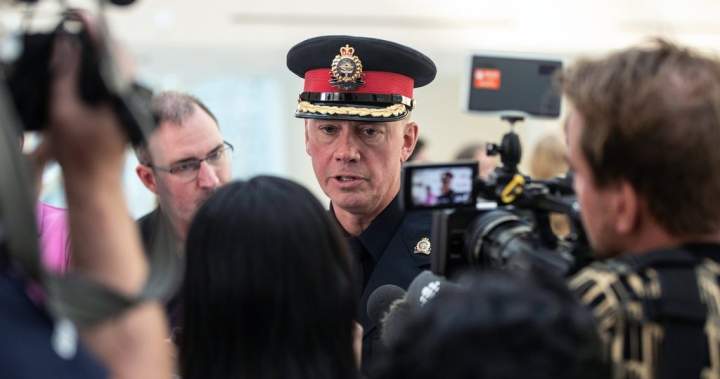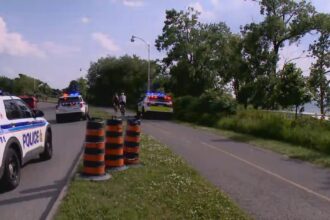In an unprecedented move that has sent ripples through Edmonton’s justice system, Police Chief Dale McFee has stepped forward to address growing tensions between his force and Crown prosecutors—a relationship critical to ensuring public safety and justice in the capital city.
The dispute, which has been simmering beneath the surface for months, came to a head following a series of high-profile cases where charges were stayed or rejected due to what police described as “differing interpretations of evidence thresholds.” Internal documents obtained by CO24 reveal that Edmonton police officers have increasingly expressed frustration over what they perceive as an unnecessarily high bar for prosecution.
“We’re witnessing a fundamental disconnect in how policing and prosecution view their respective responsibilities,” said Chief McFee during a press conference held yesterday at police headquarters. “But make no mistake—this isn’t about pointing fingers. It’s about acknowledging that our system works best when all components are aligned and communicating effectively.”
The friction centers primarily around violent crime and drug trafficking cases, where officers claim their investigative work meets reasonable standards for prosecution, while Crown attorneys maintain that evidence in many instances falls short of the “reasonable likelihood of conviction” threshold required to proceed to trial.
Justice analyst Margaret Holden points to systemic pressures as a contributing factor. “Crown offices across Canada are facing unprecedented backlogs and resource constraints following the Jordan decision,” she explained, referencing the Supreme Court ruling that established stricter timelines for criminal trials. “This naturally leads to more selective case acceptance, which police may interpret as reluctance to prosecute.”
Chief McFee has proposed a comprehensive three-part solution that includes joint training sessions, embedded Crown counsel within specialized police units, and quarterly review meetings to address patterns of case rejections. The initiative, dubbed “Project Cohesion,” has received tentative support from Alberta’s Justice Ministry, though specific funding details remain under discussion.
“The public deserves a justice system that functions cohesively,” said Alberta Justice spokesperson Thomas Wells. “We welcome the Edmonton Police Service’s proactive approach to strengthening this critical relationship.”
Statistics obtained from the Edmonton Police Service show that approximately 23% of charges recommended by officers over the past fiscal year were either modified or rejected by Crown prosecutors—a figure that has grown steadily since 2019. Similar tensions have emerged in other Canadian jurisdictions, including Vancouver and Toronto, suggesting a broader national pattern that extends beyond local personalities or politics.
Criminal defense attorney Jasmine Kaur offered a different perspective: “Police and Crown have fundamentally different obligations. Police investigate potential violations of law, while prosecutors must consider broader questions of public interest and trial viability. This natural tension, when properly managed, actually strengthens our justice system.”
Chief McFee emphasized that rebuilding trust between the two institutions will require sustained effort. “This isn’t something that gets fixed in a single meeting or with one policy change,” he noted. “It requires cultural shifts on both sides and a renewed commitment to our shared mission of public safety.”
As Edmonton grapples with this institutional challenge, residents are left wondering: In a system designed with intentional checks and balances, how do we ensure that necessary professional tension doesn’t evolve into dysfunction that ultimately compromises public safety?










